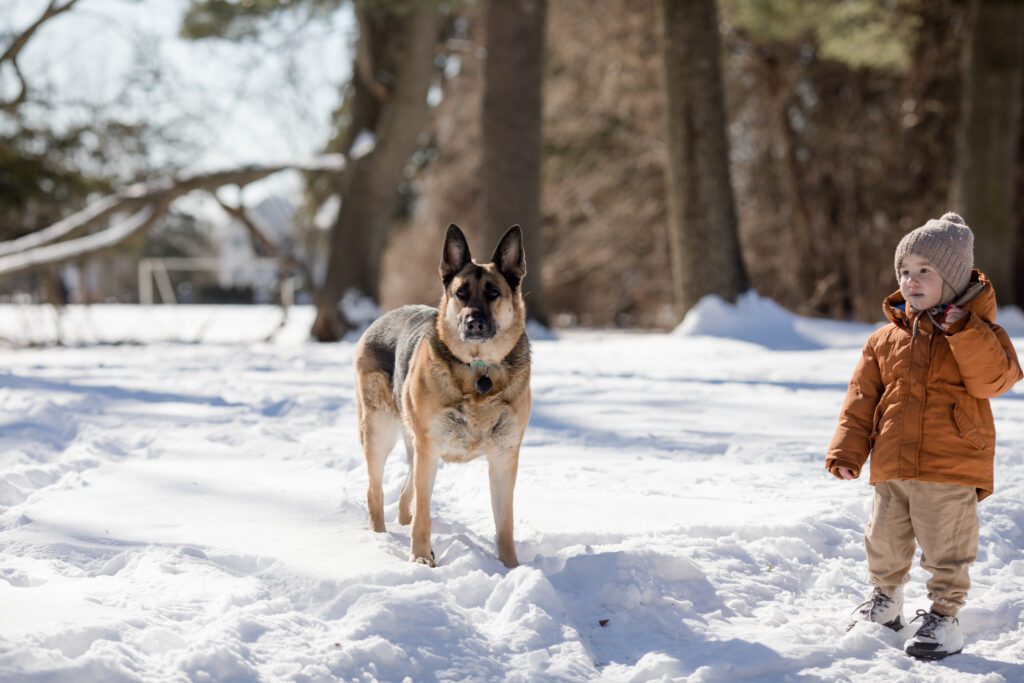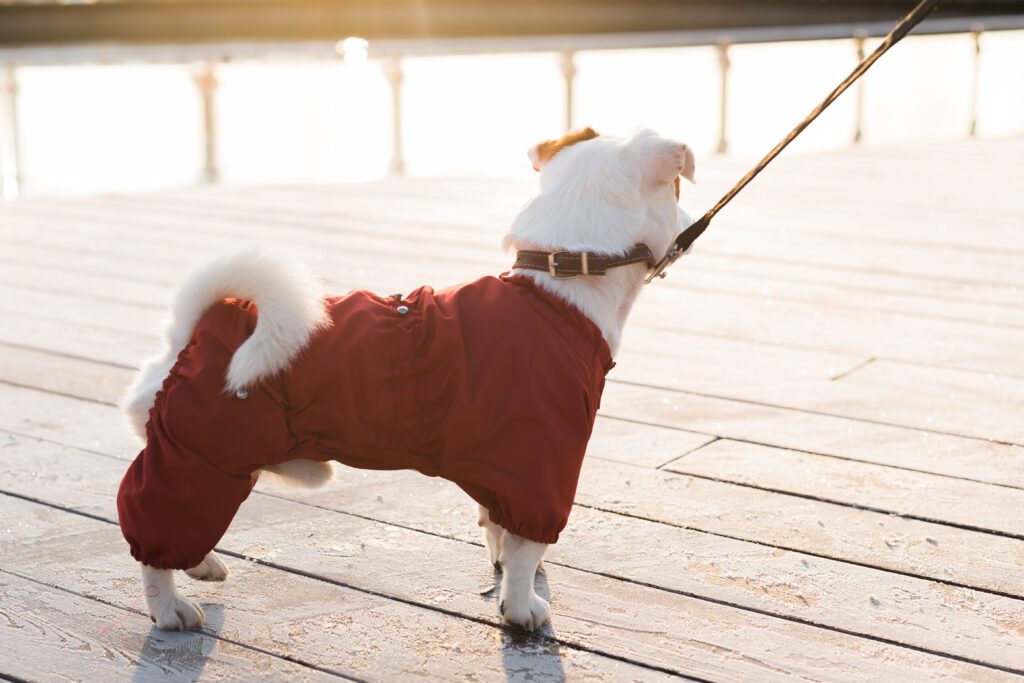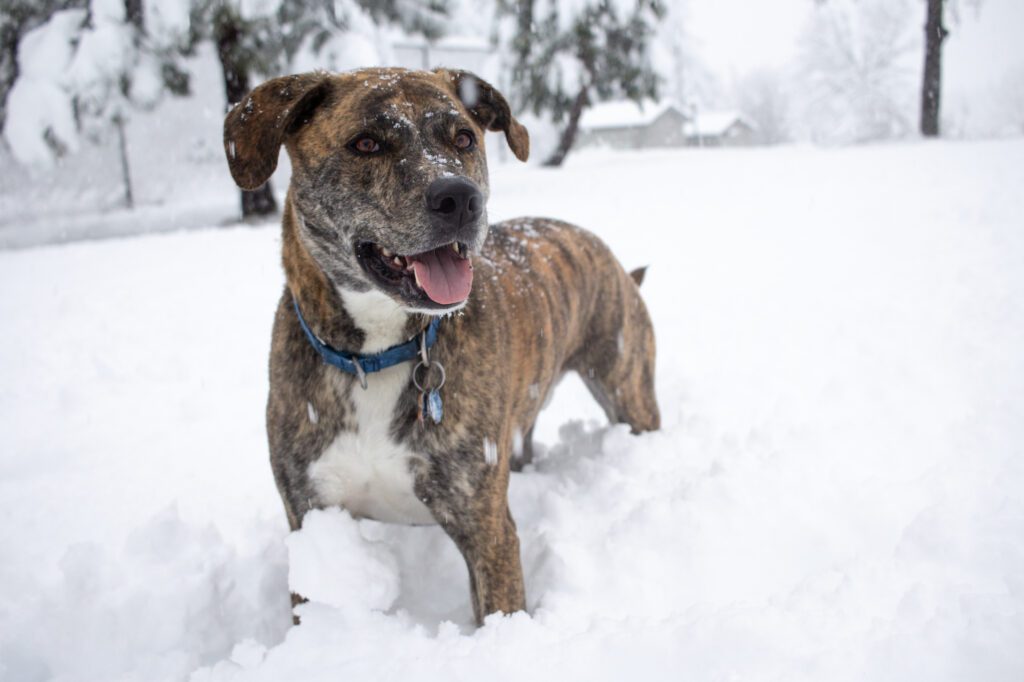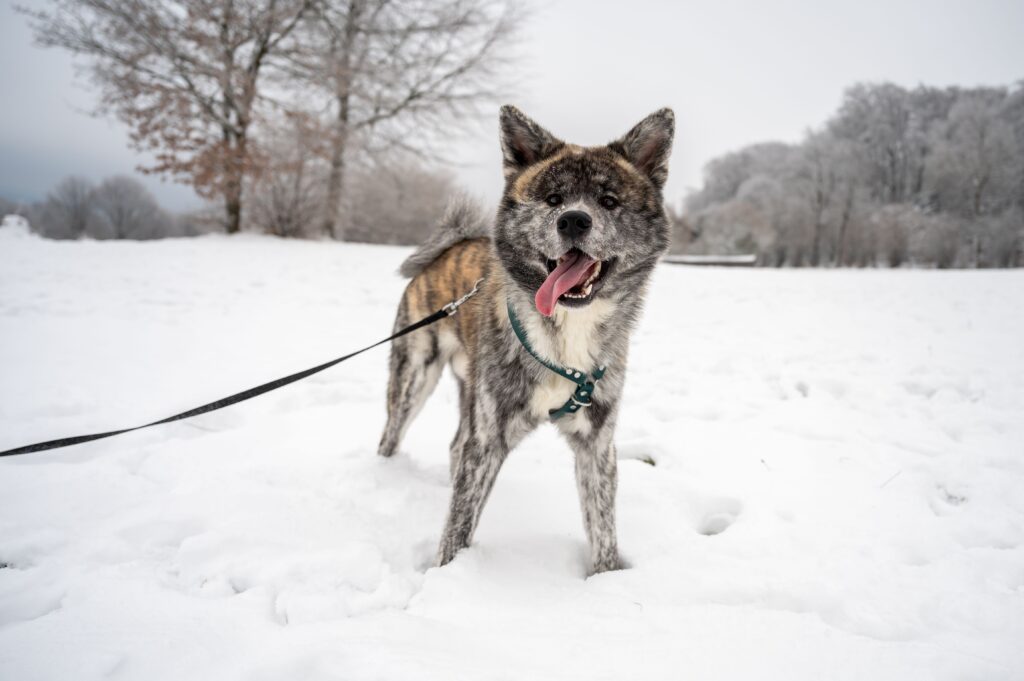When the temperatures drop and frost begins to sparkle on the sidewalks, we instinctively grab our coats and gloves before stepping outside. But what about our four-legged friends? Dogs and cold weather don’t always mix well, and while some breeds thrive in the snow, others can struggle with the chill.
At Lakecity Animal Hospital, our team of Kelowna vets knows that winter safety starts with understanding how dogs respond to the cold and what you can do to keep them healthy all season long.
Understanding How Dogs React to Cold Weather
Not all dogs react the same way to winter conditions. Factors such as breed, age, coat type, and overall health determine how well your dog tolerates the cold. Northern breeds like Huskies and Malamutes are built for snow days, while short-haired or small breeds such as Chihuahuas, Greyhounds, or Dachshunds are much more sensitive.
Just like humans, dogs and cold temperatures don’t always get along. Puppies, senior dogs, and those with health conditions like arthritis or thyroid problems are especially vulnerable. If your pet starts shivering, whining, or trying to head back indoors during walks, it’s a clear sign that your dog is cold and needs warmth immediately. If you’re unsure how your dog handles colder temperatures, consult your Kelowna vet clinic. A quick winter wellness check can help ensure your dog is fit for outdoor activity.
Winter Risks for Dogs: Frostbite, Hypothermia, and Other Cold-Weather Dangers

Dogs in cold weather face several health hazards, some subtle, others life-threatening. Prolonged exposure to low temperatures can lead to frostbite and hypothermia, both of which require immediate attention.
- Frostbite occurs when body tissue freezes, most often affecting ears, paws, and tails. Skin may appear pale, hard, or bluish before it turns red and swollen as circulation returns.
- Hypothermia happens when a dog’s body temperature drops below normal. Symptoms include shivering, lethargy, and, in severe cases, collapse or unconsciousness.
Even short trips outside can be risky during freezing conditions. Ice-melting salts and antifreeze are also common winter toxins. Always wipe your dog’s paws after walks to remove any residue and prevent them from licking harmful chemicals. If you suspect your dog is cold or showing symptoms of frostbite or hypothermia, contact your Kelowna animal hospital right away. Timely care can make all the difference.
Essential Winter Gear: Jackets, Boots, and Paw Protection for Dogs

When it comes to dogs and cold, clothing isn’t just cute, it’s practical. Short-coated, small, or thin-framed dogs benefit greatly from a winter dog jacket or sweater. Choose one that fits snugly without restricting movement.
Dog boots are another essential for winter. They protect paws from ice, salt (which can be harmful), and sharp objects hidden under snow. If your dog resists wearing boots, try applying a paw balm before walks to reduce cracking and irritation.
Here’s a quick checklist for gearing up your dog for cold weather:
- Insulated jacket or sweater – ideal for small or short-haired breeds.
- Waterproof boots – protect against salt and ice buildup.
- Reflective gear – improves visibility during darker winter walks.
- Towel or wipes – clean off paws and bellies after walks.
At Lakecity Animal Hospital, our Kelowna vets often remind pet parents that it’s better to overdress than underdress your pet when temperatures dip.
Feeding and Hydration Tips to Keep Your Dog Healthy During Winter
Did you know dogs burn more calories just to stay warm? If your pup spends time outdoors, you may need to slightly increase their food intake to keep their energy levels up. Conversely, dogs who spend most of winter indoors may need fewer calories to prevent weight gain.
Hydration is just as important in the winter. Many pet owners assume dogs drink less because they’re not panting from heat, but cold air can still dehydrate them. Always provide fresh, unfrozen water,heated bowls are a great option for outdoor dogs.
For puppies in winter, a balanced diet with proper fat and protein levels is crucial to support their growth and maintain warmth. Speak to your Kelowna vet for personalized nutrition advice, especially if your dog has dietary restrictions or health conditions.
Cold Weather Safety Tips for Walking and Caring for Dogs Outdoors

Taking your dog out in cold weather doesn’t have to be unpleasant if you plan ahead. Short, frequent walks are safer than one long outing when temperatures are low. Try to avoid early morning or late evening walks when frost is heaviest.
Here are some easy ways to keep your dog warm in winter while staying active:
- Stick to dry routes: Wet fur loses insulation quickly.
- Watch for signs of discomfort: Lifting paws, shivering, or slowing down means it’s time to go inside.
- Use a leash during snowfalls: Dogs can lose their scent trails and become disoriented easily.
- Create a cozy resting spot indoors: A warm blanket or raised bed helps dogs regulate body heat.
If your pet shows stiffness or joint pain, it could be the cold aggravating arthritis. The team at Lakecity Animal Hospital can recommend supplements or treatments to help your pet stay comfortable.
Keeping Dogs Safe During Holiday and Winter Hazards
Winter brings more than snow, it also brings festive hazards. Chocolate, tinsel, and certain holiday plants like poinsettias and mistletoe are toxic to pets. Keep decorations and treats well out of reach. If your dog spends time outdoors unsupervised, check your vehicle before starting it small dogs sometimes crawl under car hoods for warmth. Never leave pets unattended in a car during freezing weather.
Final Thoughts: When to Visit Your Kelowna Vet
Dogs and cold temperatures don’t have to mean danger, as long as you’re prepared. Watch your pet closely for changes in behavior or energy levels. If your winter dog is shivering, refusing food, or showing signs of frostbite or lethargy, it’s time to seek help.
At Lakecity Animal Hospital, our compassionate Kelowna vet clinic team is here to help you protect your dog through every season. Whether it’s preventive winter care, nutrition advice, or emergency treatment, we’re just a call away.

